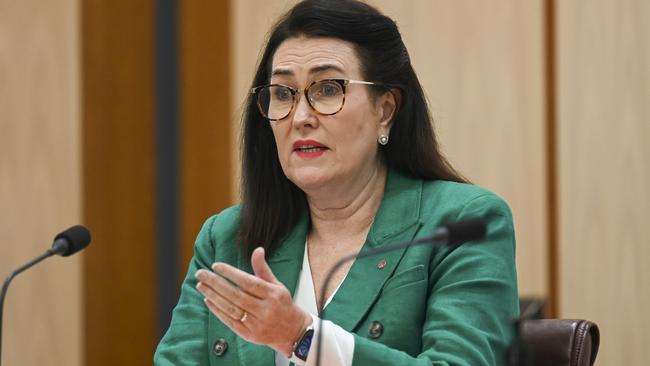Regulators may get more power to watch ASX after CHESS flop
A parliamentary committee has pointed the finger at regulators for failing to foresee issues with replacing the ASX clearing and settlement system, deemed ‘too important to fail’.

A parliamentary committee has warned of an “inherent tension” between the Australian Securities Exchange’s position as the country’s key equities marketplace and a critical provider of infrastructure to trading participants, calling for interventions in the current regulatory regime.
A report tabled late on Wednesday from the joint parliamentary committee on corporations and financial services calls for the government to lock in 12 recommendations that would give Australia’s regulators power to intervene at the ASX after the market operator torched more than $250m on an ill-fated program to replace its clearing and settlement systems.
The 177 pages of findings point the finger at regulators for failing to be alert to the ASX’s bungling of replacing its ageing CHESS systems, with parliamentarians concerned the new rebuild plans under TATA Consultancy Services may still go awry.
The ASX’s CHESS system is central to Australia’s financial markets, with the report noting the clearing and settlement system is “too important to fail”.
The committee calls on the government and regulators to be handed further powers to make rules around the ASX, calling the current system unworkable.
Committee chair Labor senator Deb O’Neill said despite public perceptions that the ASX was “ a governmental regulatory body” it was in fact a “for-profit company”.
“This reality produces an inherent tension within the ASX’s status as both a provider of market infrastructure and a market participant itself, the risks of which are heightened by the lack of public awareness of this very clear conflict of interest,” she said.
Senator O’Neill said the parliamentary inquiry had concerns the ASX lacked the capacity to deliver its CHESS replacement program, after killing off the program in November 2022 after seven years in development.
The program was initially intended to go live at the tail end of 2020.
The ASX poured money into a program that could have seen it move its paper-based CHESS system into a whole-of-systems blockchain-based platform.
However, this new platform was dogged by delays ultimately leading the ASX to dump the program to replace the ageing CHESS platform and write off $250m spent on the transformation alongside torching a further $100m spent by trading firms preparing for the new platform.
Senator O’Neill said the ASX was “preferencing their own financial benefit above serving the critical infrastructure need of the market”, noting despite recent governance changes at the market operator overseen by regulators concerns remained.
“We must ensure that key parties have learned from the failures of the CHESS Replacement Project thus far, and do everything possible to avoid them happening again,” the senator said.
Several of the committee’s recommendations would see Australian Securities and Investments Commission and the government further empowered to intervene in the operations of the ASX.
This could see ASIC handed the power to “make rules to facilitate competition or fair provision of monopoly clearing and settlement services in line with the Council of Financial Regulators’ recommendations”.
The report notes the proposed regime “would give a resolution authority the tools to take action for a distressed clearing and settlement facility and to support the continuity of the facility’s critical market functions”.
“These proposals broadly implement the international standards for resolution regimes for financial institutions adopted by the Financial Stability Board,” the report said.
“These proposals have also considered the crisis management powers available to the Australian Prudential Regulation Authority.”
The committee’s recommendations would also redistribute existing powers between authorities and the minister.
“Currently, the minister has powers that more appropriately sit with the regulators, while ASIC has powers that more appropriately sit with the RBA,” the report noted.
“ASIC submitted that formally redistributing these powers will better distinguish the regulators’ operational responsibilities from the strategic role of government and align the regulators’ powers with their respective mandates.”
ASIC and the Reserve Bank of Australia, another key regulator of the ASX, are also recommended to “make interoperability a focus of their monitoring of the Australian Securities Exchange Clearing House Electronic Subregister System Replacement Project”.
This would allow different systems to interact with each other, rather than the current model which prevents new entrants.
Although current legislation for Australian cash settlement of equity markets allows for competitors to the ASX, the market operator’s position at the centre of the trading landscape makes challengers unlikely.
The committee recommends the Council of Financial Regulators, which is made up of Australia’s key agencies, explore ways to address the “interoperability barrier” as well as suggesting further reviews to new legislation and regulatory actions in late 2026.
“To date, there has been no effective competition in the clearing and settlement of listed equities in Australia,” the report noted.
“An environment for competition in clearing and settlement facilities existed briefly in the early 2000s, between the Sydney Futures Exchange and the ASX.”
An ASIC spokesman said the regulator would consider the report “and respond in due course”.
The ASX said it would review the report and work with stakeholders to “progress the safe and reliable implementation of a replacement for CHESS”.
ASX managing director and chief executive Helen Lofthouse said “we are highly conscious of the importance of the CHESS replacement project to the whole market and ASX is very focused on continuing to uplift capability, processes and stakeholder engagement”.








To join the conversation, please log in. Don't have an account? Register
Join the conversation, you are commenting as Logout